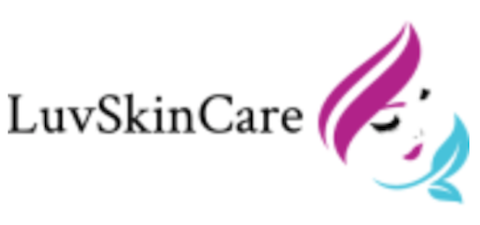Zinc is a mineral that is absolutely vital to most basic human functions. It is found in almost every single one of your cells and helps you fight off bacteria, recover from illnesses, and heal wounds. A multitasker, zinc is marketed to most adults in the form of supplements and tablets and is in most multivitamins on the market today.
Based on it basically having healing superpowers, it comes as no surprise that zinc can seriously improve the appearance of acne!
Contents
Table of Contents

Zinc Benefits for Skin
Scientists believe that there is a direct correlation between zinc deficiency and acne breakouts. It makes sense; zinc aids your immune system in fighting off bacteria and when the levels are low, more germs can break through your protective lipid layer.
More bacterial present on the skin means more acne breakouts and a higher potential for infection. Those with a zinc deficiency may also experience a higher frequency of illness, as their body is not able to fight off infection as well.
Zinc has been shown to provide a measurable decrease in the presence of many other inflammatory skin health issues, as well. Melasma, rosacea, eczema, and other dermatoses all show positive reactions when treated with zinc in some cases.
This is due to the mineral having anti-inflammatory facets, allowing it to reduce swelling, soreness, and redness. For those who are looking for a highly effective treatment that attacks both the cause and symptoms of acne breakouts, zinc supplementation is a good option to consider.
Zinc has even been known to help lessen the appearance of acne scarring so if you feel you may be a good fit for zinc treatment, consult a medical professional and find out your options.
Zinc Deficiency
Even if you do not suffer from acne, if you suspect you may have a zinc deficiency you should see a doctor. Zinc is an essential trace element, meaning that small amounts of the metal are necessary for our bodies to be healthy.
Especially problematic in children and those with compromised immune systems, zinc deficiency can cause a plethora of negative effects including stunted growth, diarrhea and other digestive issues, and delayed wound healing with an increased risk for infection.
Zinc is vital for our immunal health and if you suspect there is a chance of a potential lack of zinc in yourself or your child, speak to your doctor about supplementing or dietary changes.
The best way to ensure you have a balanced zinc level is to get the mineral naturally through your diet. Supplementing without a doctor’s supervision can cause an increased potential for overdosing, which can have some pretty nasty health side effects.
Where to Find Zinc in Food?
Foods like red meat, dairy, legumes, and shellfish all contain high levels of zinc. Additionally, if you enjoy trail mix you are likely getting a healthy dose without even knowing it. Nuts and seeds are zinc rich! Eggs and starchy/green veggies are also a good way to go, as they contain high levels of zinc along with other acne fighting nutrients like vitamin A and healthy fats.
Too Much Zinc Side Effects
Try not to go overboard, though, as too much of a good thing even applies to minerals and vitamins. It is recommended your daily intake does not exceed nine to eleven milligrams of zinc per day. Toxicity risks begin to show at around thirty five to forty milligrams.
A lot of potential negative side effects become present, including the inability to process copper, gastrointestinal issues, and even heavy metal poisoning. Heavy metal poisoning is especially concerning, as it can cause vomiting and disorientation. If you suspect you are experiencing effects of this disorder, contact emergency services and keep yourself hydrated until assistance arrives.
Conclusion
Zinc is a natural, excellent way to begin combatting troublesome acne spots. Many acne medications contain zinc in its metal or salt forms, especially if it is a topical solution. Additionally, one can achieve zinc consumption through supplementation or by eating a well balanced diet.
Scientifically proven to help, many doctors recommend taking zinc before moving on to more intensive treatments as the complications associated with the element are rare and only come with overdosing. If you believe you are zinc deficient or want to give it a try as a treatment method, talk to your doctor or dermatologist and see if it is right for you!
Related Questions
Can Topical Zinc for Acne Help Me Get Rid of Acne?
Topical application has fewer side effects, but may not be as effective as oral supplementation. But this does not mean that it is totally ineffective and, as we have already seen, represents much less risk. In addition to its anti-inflammatory properties, topical zinc can help eliminate the germs that cause acne and reduce oil production.
But, to stay on the safe side, first start with what we call a patch test. Apply zinc lotion on a small less visible part of your body, like the inside of your arm. If after a day or two, you don’t see any redness or irritation on your skin, then go for it on the area you want to treat.
How Long Does Zinc Take to Clear Acne?
It might take up to 3 months of topical applications before you see visible results. In case you haven’t detected any modifications through this time, speak with your physician about if zinc can help your acne from the inside out. They could have the ability to recommend particular dietary alterations or oral nutritional supplements.
